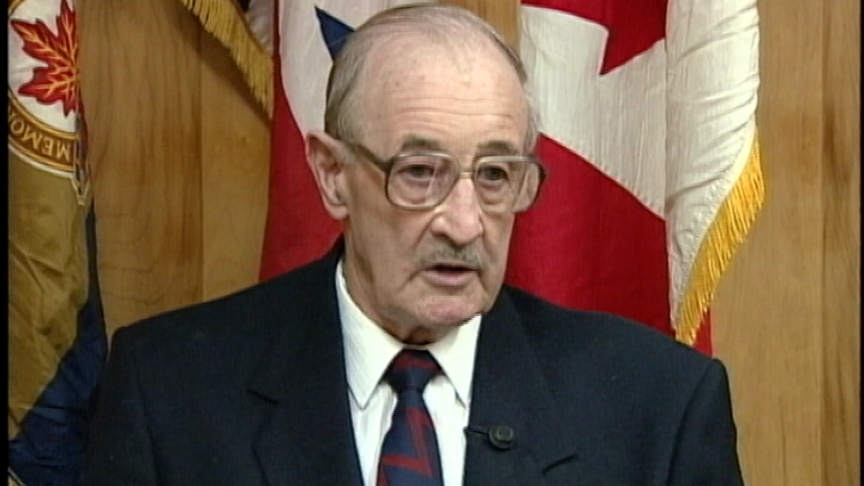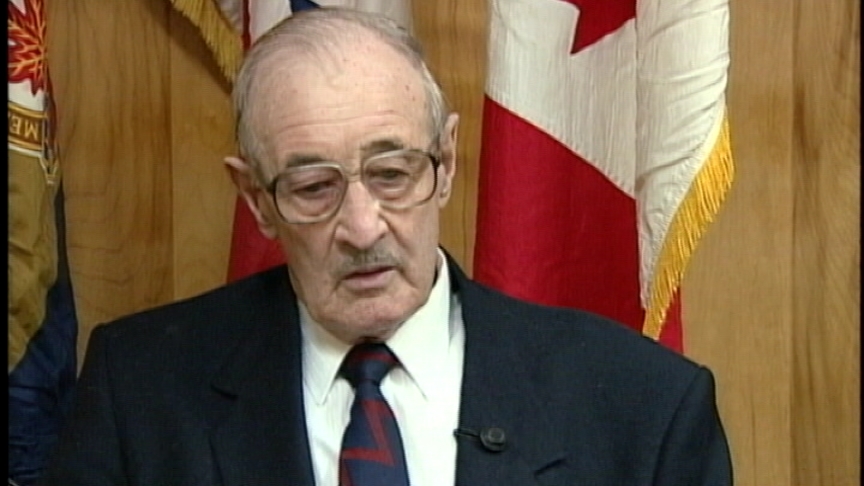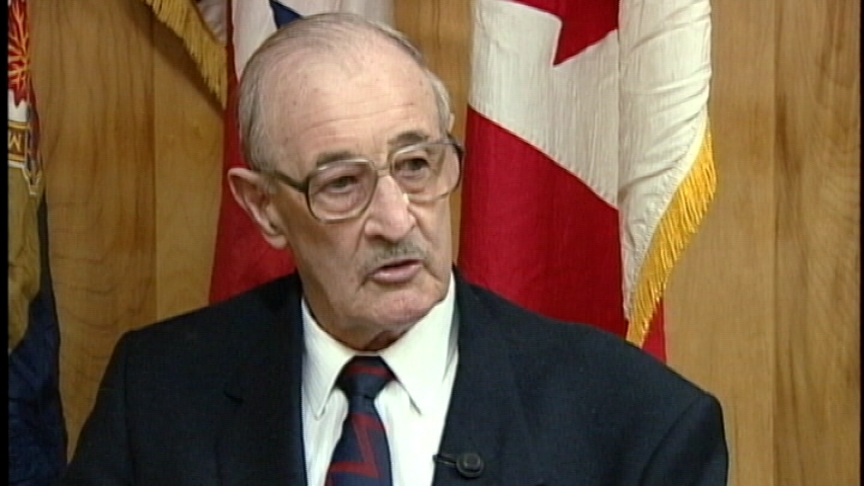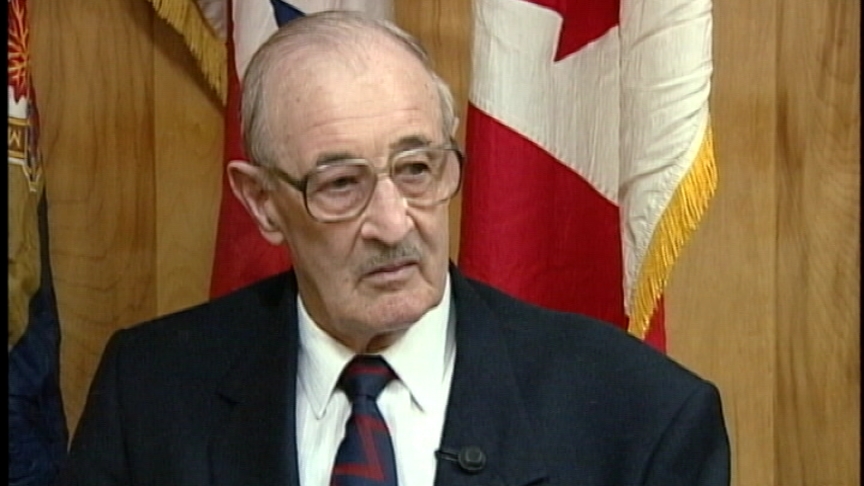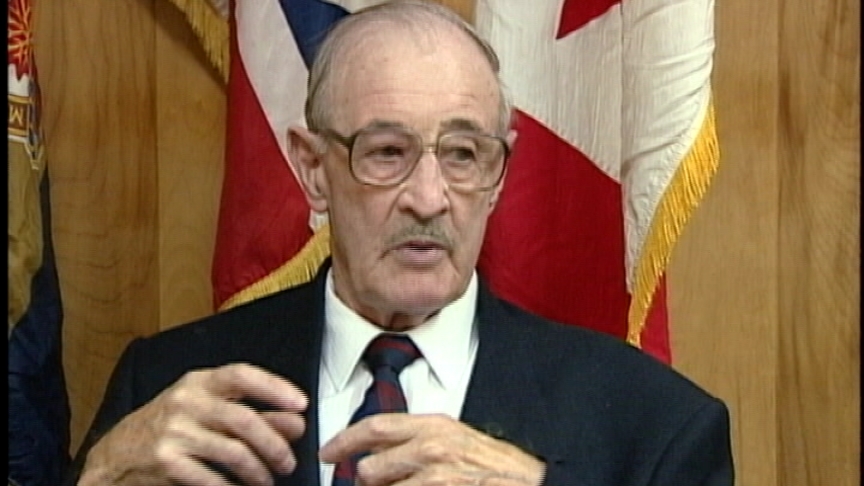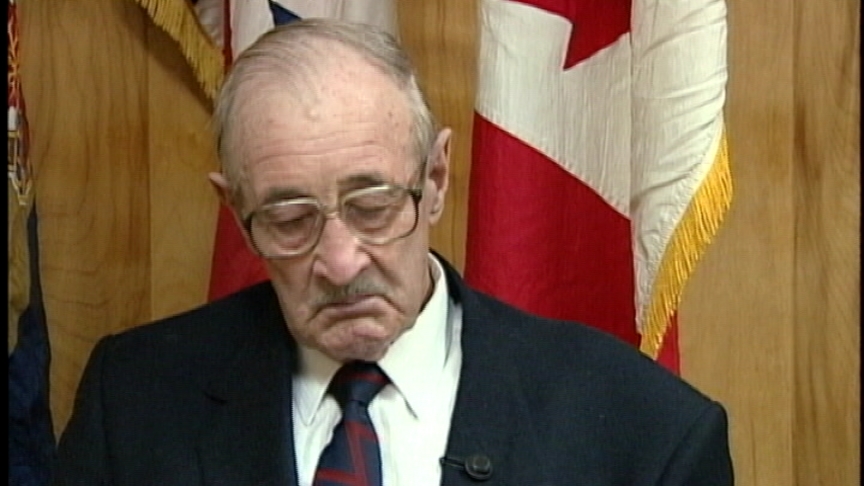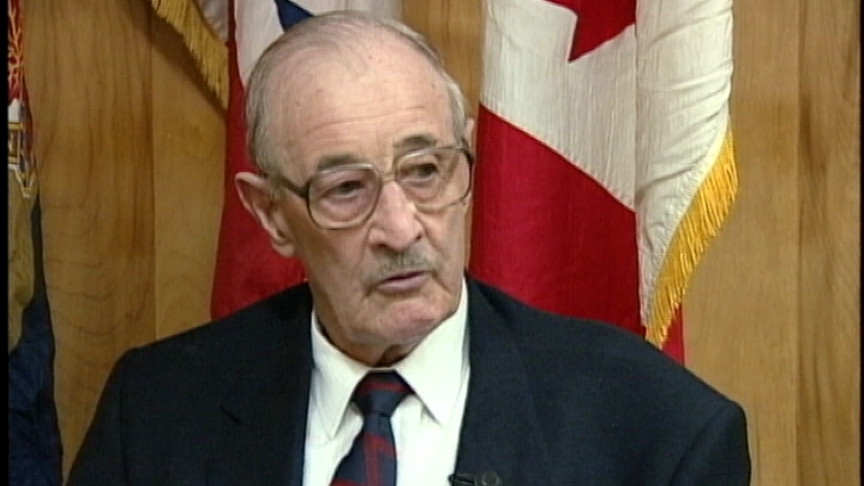Preparing for D-Day
Heroes Remember
Preparing for D-Day
Transcript
Description
Mr. Rogers talks about loading their barges and waiting out the weather until they could sail out for the D-Day attack.
Frederick Rogers
Mr. Rogers was an infant when his father died as a result of gas poisoning during his service in the First World War. His mother brought him and his only sister to Canada when he was about two years old. Mr. Rogers joined the Essex Regiment Tank (militia) in Windsor, Ontario when he was 14 or 15 years old. He went on to complete Grade 10 and at the age of 16 went to work on a farm to support himself. He enlisted in the Canadian Army on February 18, 1941. Basic training was provided in Kitchener, Ontario and he was then sent to Camp Petawawa and, finally, to Sussex, New Brunswick to join the 12th Field regiment as a replacement. The regiment arrived in Liverpool, England on July 31, 1941 and were immediately taken by train to Bramshot, England.
Meta Data
- Medium:
- Video
- Owner:
- Veterans Affairs Canada
- Duration:
- 03:16
- Person Interviewed:
- Frederick Rogers
- War, Conflict or Mission:
- Second World War
- Location/Theatre:
- Europe
- Battle/Campaign:
- D-Day
- Branch:
- Army
- Units/Ship:
- 12th Field Regiment
- Occupation:
- Signalman
Related Videos
- Date modified:



